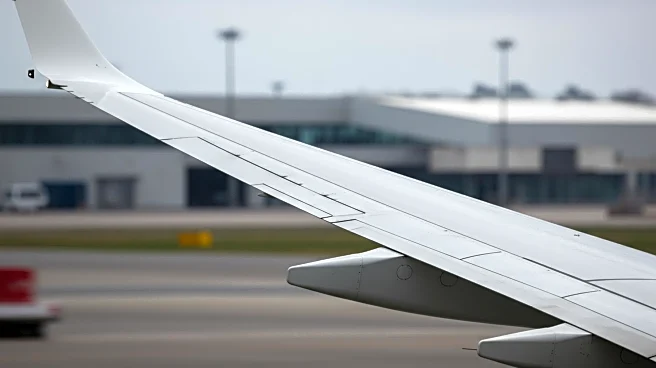What's Happening?
The Canadian government has intervened in the ongoing strike at Air Canada, ordering binding arbitration between the airline and the Canadian Union of Public Employees (CUPE), which represents over 10,000 flight attendants. The strike, which began on Saturday morning, has led to the cancellation of hundreds of flights, affecting approximately 130,000 passengers daily. Air Canada had offered a 38% increase in total compensation over four years, but CUPE rejected the offer, citing it as below inflation and market value. The strike has resulted in significant disruptions, with Air Canada advising affected customers not to travel to airports unless booked with another airline.
Why It's Important?
The strike at Air Canada highlights ongoing labor disputes within the airline industry, affecting thousands of passengers and potentially impacting Canada's travel and tourism sectors. The government's intervention underscores the importance of maintaining stability in supply chains and the aviation industry. The outcome of the arbitration could set a precedent for future labor negotiations in the sector, influencing wage standards and working conditions for flight attendants across Canada. The strike also raises concerns about the balance between corporate offers and union demands in a post-pandemic economic environment.
What's Next?
The binding arbitration process ordered by the government is expected to bring both parties to the negotiating table, potentially leading to a resolution of the strike. The Canadian Industrial Relations Board (CIRB) will oversee the arbitration, and its decision could influence future labor relations in the airline industry. Stakeholders, including passengers, airlines, and unions, will be closely monitoring the process, as its outcome could affect travel plans and operational strategies for Air Canada and other carriers.
Beyond the Headlines
The strike and subsequent government intervention raise questions about the role of government in labor disputes and the rights of workers to strike. CUPE's assertion that the intervention violates charter rights could lead to legal challenges and discussions about labor laws in Canada. The situation also highlights the broader issue of wage disparities and working conditions in the airline industry, potentially prompting calls for reforms and increased transparency in labor negotiations.










